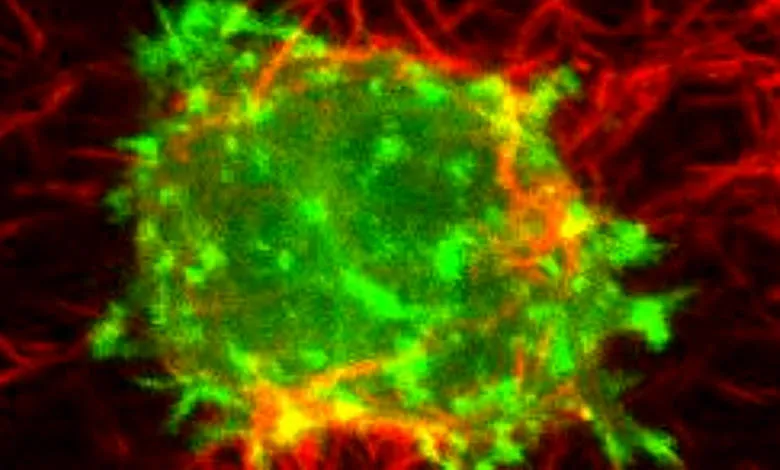16 April 2018
King’s to share £3m award to help solve life science challenges
King’s initiative Integrative Biological Imaging Network (IBIN) is among five research networks awarded £3 million through a joint technology initiative. The funding will harness new and emerging developments from the engineering and physical sciences to advance life sciences research.

Led by Professor Maddy Parsons from the Randall Division of Cell & Molecular Biophysics, the King’s network will bring together biologists, physicists, chemists and mathematicians to develop new approaches to take fast, high-resolution images of living cells within 3D model systems and tissues.
Current imaging techniques are not capable of capturing and analysing highly dynamic events within live cells in 3D environments. The multidisciplinary network will provide new solutions to this problem, which will lead to better approaches for understanding cell behaviour in healthy and diseased tissues.
Professor Parsons said: 'We are extremely excited to be awarded this Technology Touching Life (TTL) grant; it represents a unique opportunity to assemble a truly multidisciplinary team and tackle some key challenges in optical imaging for applications in biomedical research.
‘Our IBIN network will provide an important open platform to connect many research teams across the UK, delivering new routes to innovation, knowledge sharing and training.’

Technology Touching Life is a joint initiative between the Medical Research Council (MRC), Biotechnology and Biological Sciences Research Council (BBSRC) and the Engineering and Physical Sciences Research Council (EPSRC), all part of UK Research and Innovation.
By facilitating partnerships between engineers, physical sciences researchers and health and life scientists, these networks aim to nurture the adventurous research needed to develop the next generation of advanced technology.
Dr Nathan Richardson, Head of Molecular and Cellular Medicine at the MRC, said: ‘The development and application of innovative technologies is crucial to furthering our knowledge and understanding across the biomedical sciences. These Technology Touching Life networks offer an exciting opportunity to bring researchers together, across a number of disciplines, to explore the tools and technologies of the future, with impacts ranging from how we grow cells to better mimic the human body, to following dynamic changes in cells and tissue.’
ENDS
More information on the successful networks can be found here.
For more information please contact the Public Relations Department at King’s College London on +44 (0)207 848 3202 or pr@kcl.ac.uk.
For more information about King's please visit the King's in brief web pages.
World-changing ideas. Life-changing impact: https://spotlight.kcl.ac.uk/
